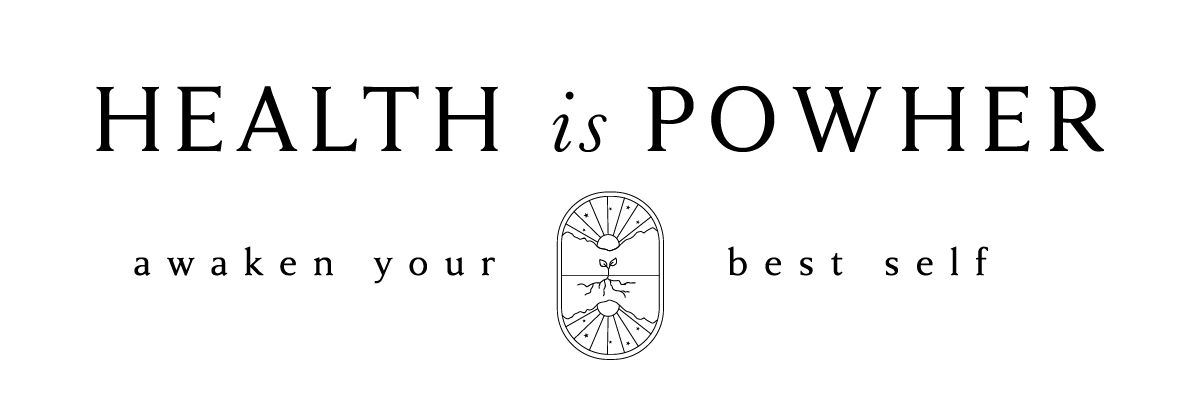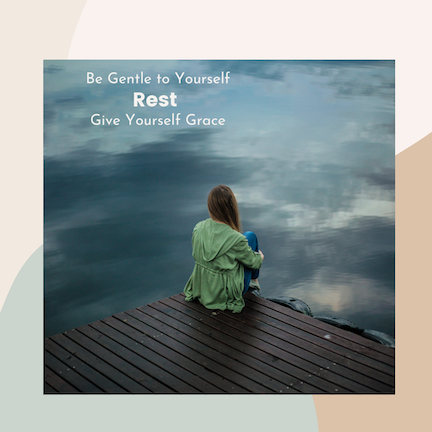How To Rise Up From Depression: 6 Lesser Known Therapies
Health Is PowHer Podcast Episode 83 with Dr. Anna Esparham, MD
Heal Depression Therapies Supplements
Click here to listen to the full episode on Libsyn!
This is something I’ve recently learned in dealing with it myself. Sometimes, the best way for me to understand a condition, disease, illness, issue, symptom is to truly experience it for myself and figure out how to overcome it, heal, and grow.
Depression, or what is termed medically as major depressive disorder (MDD), is so incredibly multi-faceted that there isn’t just one path to healing for everyone who has it. And yes, you can heal from depression. There is a small genetic role ~ about ⅓ of it in some twin studies, but the other 2/3rds is largely environmental, situational, biological, generational, nutritional, spiritual, emotional, metabolic, immune, and so much more.
As a pain doctor in neurology, I also know that many of our brain structures, neurotransmitters, and how much blood flow we’re getting to those areas are involved in depression. And sometimes emotional pain can manifest itself in physical pain, because the brain structures that mediate pain and emotions get more blood flow in states of depression.
These brain areas, and their connections to the other parts of our nervous system, also stop being able to regulate themselves - making it more difficult to modulate negative emotions.
Our memory structure, called the hippocampus, diminishes or becomes smaller causing more memory/cognition issues and dysthymic mood, or a gloomy mood. In fact, they are finding that antidepressants may actually create new hippocampus neurons which then helps our mood! It might not just be the serotonin that does all the work for us.
Not to mention, that there is a major correlation of stress, overwhelm, disconnection from the true authentic self with depression and the neuro-immune-endocrine system. Any form of stress on our bodies, whether it be life’s stressors and events, environmental changes/weather changes, career changes, infection, can increase our cortisol levels which dysregulate our hypothalamic-pituitary-adrenal axis and change the structures in our brain, among other tissues in our body. Stress also induces pro-inflammatory cytokines to kick our immune system in gear that potentiates major depressive disorder. Depression is found to be correlated to inflammation and autoimmune disease, such as lupus, multiple sclerosis, rheumatic arthritis, etc…
There is so much more to unravel about the causes and etiology of depression, but that will take a whole course to dive into - or maybe an upcoming series if you’re interested!
But what does all this mean for treatment. That you can treat and heal depression in multiple different ways.
I felt depression several times throughout my life. For me, the root issue was always that something in my life needed to change. The feelings of depression were a message. The message that I couldn’t keep living the way that I was or my spirit was going to suffocate and drown.
Most of the time, that meant a big career change for me. Leaving a toxic workplace or situation or relationship. And until I did that, all the therapy, anti-depressants were just getting me by. I had to make that leap and have faith that it would all work out. And then the depression lifted. Every single time.
And then when I did leave the relationship, change my career, leave a toxic situation, the depression always lifted. I felt back to my normal self again. And if this resonates with you, sometimes we don’t have the energy to make that leap. So self-care, meditation, creative visualization, hypnosis, or prayer are great ways to lift yourself up, gain more energy so that you can take that next step. Give yourself grace during this period. Rest and get more rest. And then little by little, you’ll be able to do what you need to heal and overcome this.
What do you feel that seems incongruent with your authentic self? Anything in your life right now that doesn’t truly match who you are? What doesn’t feel right to you? Use your intuition, your gut feeling. Stop letting your head do all the work for once ;)
There’s always therapy (many different types of therapy, including psychoanalysis, cognitive behavioral therapy, acceptance therapy), clinical hypnosis, past-life regression therapy, EMDR especially if there’s a trauma component. Find what works for you, ask your healthcare provider, your doctor, your colleagues, friends. You do not have to go it alone. Many people - and those you wouldn’t even think- have had or are still trying to overcome their depression. You are not alone.
overcome depression
Click Here to Listen to the Health Is PowHer's Podcast on Libsyn!
There’s also some other not-so well displayed treatment out there compared to the standard of anti-depressants and therapy. A lot of these studies that were reviewed in a meta-analysis back in 2019 in British Journal of Medicine were of low quality of evidence.
Acupuncture
Acupuncture was found to be significantly beneficial in decreasing depression severity in adult studies, especially when combined with anti-depressants. I do see this in practice as an an acupuncturist, and find that mood is typically improved after acupuncture sessions.
Aromatherapy
There’s some potential for certain types of aromatherapy to have an effect on depression, and I’m currently exploring this with some of my blends I make. Many essential oils can have an uplifting effect, decrease burnout and exhaustion, calm anxiety, and increase feelings of hope and encouragement. My favorite ones for when I’m feeling down are a blend of peppermint, bergamot, sweet orange, and lavender or grapefruit.
St. John’s Wort
St. John’s Wort supplementation has some mixed results, but it has been shown to be comparable to certain anti-depressants in decreasing the severity of depression. This one has to be used with caution as it can interact with many medications.
Saffron
Saffron is such a rich, wonderful spice that my family uses in most of our Persian dishes. And what’s interesting is there’s some more recent studies on its effect on mood. It can be toxic in relatively small doses, so have to be cautious. It has some effect on depression when used for up to 8 weeks.
Hypnosis
Using hypnosis to heal yourself is one of the most amazing therapies I have witnessed and practice myself. I use it for many symptoms, disorders, conditions, and issues, including pain and anxiety. Hypnosis has been found to also decrease depressive symptoms. Hypnosis is all about using your imagination to change the outcome of a goal, such as healing depression. You do need someone certified to learn from! That includes me. We did have a hypnosis series as a freebie on our website, but we’ll be doing more teachings throughout our wellness programs coming up!
Light Therapy
For individuals with seasonal patterns of depression, aka winter blues, light therapy may be of benefit. It’s not beneficial for everyone, but if you are sensitive to light and feel absolutely wonderful when the sun is out, then try out a 10,000 lux daylight during the winter for at least 20 min in the morning and see what happens! I use one every day during the winter time and once that sun comes out, I try and get 20 min during its peak in the day. It’s a game changer for me!
Well, more to come on some of the therapies that have been studied for depression, as well as some anecdotal evidence! Let us know if a therapy has helped you with your depression. We’d love to hear about it over on Instagram.
Don’t forget to subscribe, rate, and review our podcast on iTunes, Stitcher, and Spotify!!
We would love to share with more people, so please send to a friend, acquaintance, or family member who you think could use this info!


